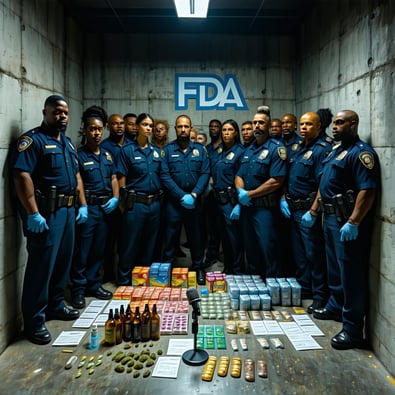Nearly 38,000 Indiana middle and high school students have tried psychoactive Delta THC products, according to the 2024 Indiana Youth Tobacco Survey — a direct result of a loophole in state marijuana law that puts these substances within easy reach of minors.
Delta 9 THC is the compound in marijuana that causes people to feel high. For the most part, it's banned in the state. But Indiana follows the 2018 federal farm bill's hemp definition, creating a loophole that allows similar psychoactive compounds like Delta 8 THC. Delta THC products, including drinks and candy, are widely accessible and appear to be specifically marketed toward children.
2% of public middle school students and nearly 10% of public high school students reported having tried Delta THC products. That translates to 37,565 students who have used a drug that could lead to long-term damage to their attention, memory and learning, as well as increased risks of psychiatric disorder, testicular cancer, respiratory difficulties and more.
The well-documented damage to the ability of students to learn and grow is also highly concentrated among the most at-risk and marginalized. Research shows marijuana use is higher in schools with greater poverty, lower achievement, and higher absenteeism. This higher use is likely to translate to Delta THC products as well, considering their widespread distribution..
Despite this clear harm, some legislators have proposed the wrong solution.
State Sen. Travis Holdman, R-Markle, and state Rep. Jake Teshka, R-North Liberty, pushed a law this year that would have formally legalized and regulated Delta 8 THC. It fortunately died during the last stages of the legislative session.
Attorney General Todd Rokita was one of the major opponents of the bill, as he has long held the products should be illegal under current law. As a result, there has been inconsistent enforcement against them at various times and places. A lawsuit against Rokita over the issue was dismissed a few months ago, declaring his opinion was not legally binding while leaving enforcement in a gray area.
However, Holdman and Teshka’s bill made the unfortunate mistake of looking at the proliferation of marijuana through the mantra of “safe, legal and rare.” In practice, as is the case with decriminalization of marijuana in other states, pushing for “safe, legal and rare” only increases accessibility of the drug for minors. It would also make it more difficult for prosecutors to enforce existing laws against marijuana.
What inevitably follows from actions that reduce the legal risk around a vice industry is that more investors will see it as an opportunity. New capital flows into the business, making it increasingly ubiquitous and socially acceptable.
Of course, proponents of full-on marijuana legalization are counting on exactly that, as an opportunity to boost state tax revenue and reduce nonviolent arrests.
But the data tells a different story. Studies show the modest economic benefits are overshadowed by a 17% increase in substance use disorders, 35% increase in chronic homelessness and 13% increase in arrests on average.
As Indiana leaders abdicate responsibility for public health and the state and federal governments limit Medicaid access, it would be the worst possible time to make Delta THC products more accessible.
State leaders have already wisely taken action to reduce tobacco consumption in light of their other cuts to public health spending.
It is about time they finish the deal and ban marijuana once and for all by closing the loophole allowing the sale of Delta THC products.





